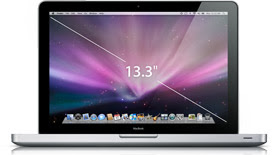I've also been trying to get together a visual effects folio website, which I have just finished uploading, and you can totally check it out here:
www.ultra-awesome.com
Anyway, about my uni piece; It is an entirely animated 3D piece called "A Short Visual History of Videogames".
It is a 3 minute long "visual essay" (or whatever you call these things) about the history of videogame consoles, from 1972 when Ralph Baer invented the Odyssey with Bob Tremblay, to the launch of the current generation of consoles and beyond.
I did my project about the history of videogames because; I know lots about it, and I'm not very good at the deep-meaningful/pretentious stuff that most student films/animations seem to consist of. Plus ultimately my piece was always mainly intended to be a sort of modelling showreel, with the narrative taking a back seat to pretty visuals designed to show off my technical abilities with 3D modelling and lighting etc.
My aim here was to develop my modelling/texturing/lighting/compositing skills to the point where I was able to achieve photo realistic visuals with all of the consoles.
Anyway, you can view the finished piece here, or you can go to this page on my folio site:
A Short Visual History of Videogames
To view it in a larger size (since blogger makes the video really small and low resolution here, lame).
If you want to see this full sized 1024 by 576 resolution video, click on the the vimeo button in the video player, scroll down and click "download original file" (although, you'll need to create a vimeo account to do that).
I'd also made a snazzy looking DVD case for when I handed in all of the submission stuff to the lecturers:
 Here is a super hires image with random screenshots, that I used for the back cover of the DVD case.
Here is a super hires image with random screenshots, that I used for the back cover of the DVD case. Also, here is the front cover of the dvd case I made, in a handy desktop wallpaper size, for if you want a bit of old school arcade action on your computer desktop:
Also, here is the front cover of the dvd case I made, in a handy desktop wallpaper size, for if you want a bit of old school arcade action on your computer desktop:
Here are a couple of screencaps of the Maya scene files, to give you a bit of an idea about my mesh topology and the lighting setup I used:
 Lighting was pretty simple for most scenes; only 3 directional lights with soft shadows, to simulate studio lighting and to provide soft reflections on the consoles made of the black low-sheen plastics (I used an anisotropic shader for this with a volumetric brownian bump map).
Lighting was pretty simple for most scenes; only 3 directional lights with soft shadows, to simulate studio lighting and to provide soft reflections on the consoles made of the black low-sheen plastics (I used an anisotropic shader for this with a volumetric brownian bump map). Some scenes had more complex lighting; for the xbox/PS2/gamecube/dreamcast scene, I had to use a heap of light-linked area lights to get specific reflections off certain objects for the desired camera angle.
Some scenes had more complex lighting; for the xbox/PS2/gamecube/dreamcast scene, I had to use a heap of light-linked area lights to get specific reflections off certain objects for the desired camera angle.
























